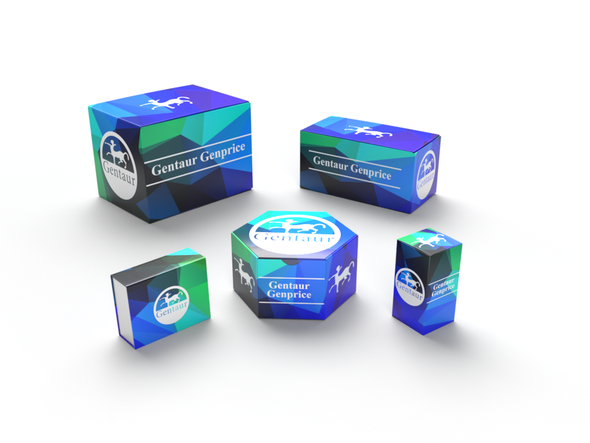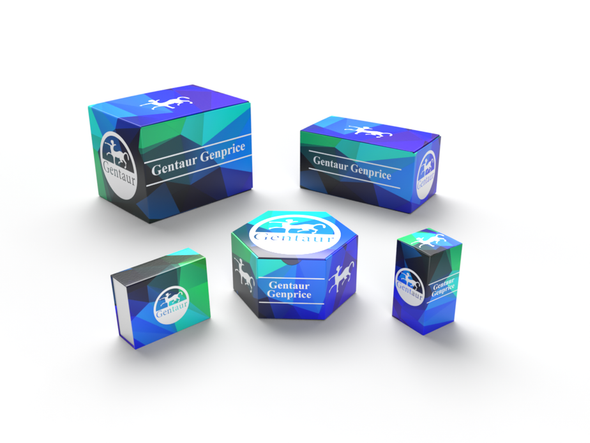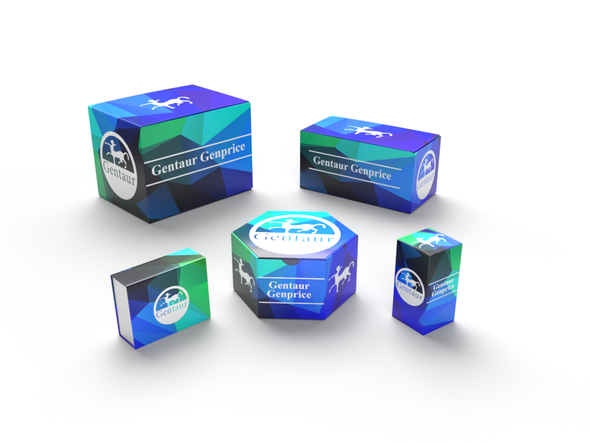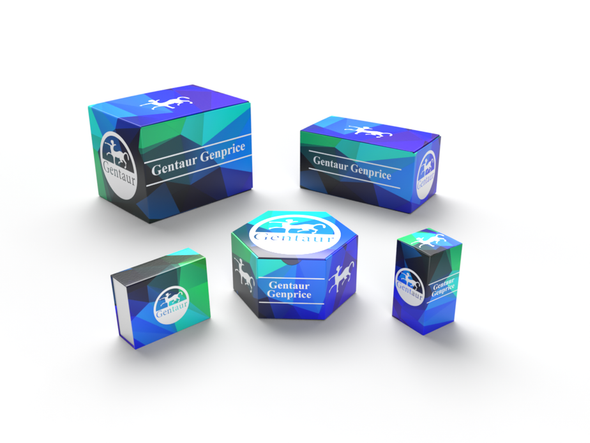Description
CPN1 Antibody | 56-714 | Gentaur UK, US & Europe Distribution
Host: Rabbit
Reactivity: Human
Homology: N/A
Immunogen: This CPN1 antibody is generated from rabbits immunized with a KLH conjugated synthetic peptide between 210-240 amino acids from the Central region of human CPN1.
Research Area: Cell Cycle
Tested Application: WB, IHC-P, Flow
Application: For WB starting dilution is: 1:1000
For IHC-P starting dilution is: 1:10~50
For FACS starting dilution is: 1:10~50
Specificiy: N/A
Positive Control 1: N/A
Positive Control 2: N/A
Positive Control 3: N/A
Positive Control 4: N/A
Positive Control 5: N/A
Positive Control 6: N/A
Molecular Weight: 52 kDa
Validation: N/A
Isoform: N/A
Purification: This antibody is prepared by Saturated Ammonium Sulfate (SAS) precipitation followed by dialysis
Clonality: Polyclonal
Clone: N/A
Isotype: Rabbit Ig
Conjugate: Unconjugated
Physical State: Liquid
Buffer: Supplied in PBS with 0.09% (W/V) sodium azide.
Concentration: batch dependent
Storage Condition: Store at 4˚C for three months and -20˚C, stable for up to one year. As with all antibodies care should be taken to avoid repeated freeze thaw cycles. Antibodies should not be exposed to prolonged high temperatures.
Alternate Name: Carboxypeptidase N catalytic chain, CPN, Anaphylatoxin inactivator, Arginine carboxypeptidase, Carboxypeptidase N polypeptide 1, Carboxypeptidase N small subunit, Kininase-1, Lysine carboxypeptidase, Plasma carboxypeptidase B, Serum carboxypeptidase N, SCPN, CPN1, ACBP
User Note: Optimal dilutions for each application to be determined by the researcher.
BACKGROUND: Carboxypeptidase N is a plasma metallo-protease that cleaves basic amino acids from the C terminal of peptides and proteins. The enzyme is important in the regulation of peptides like kinins and anaphylatoxins, and has also been known as kininase-1 and anaphylatoxin inactivator. This enzyme is a tetramer comprised of two identical regulatory subunits and two identical catalytic subunits; this gene encodes the catalytic subunit. Mutations in this gene can be associated with angioedema or chronic urticaria resulting from carboxypeptidase N deficiency. [provided by RefSeq].










